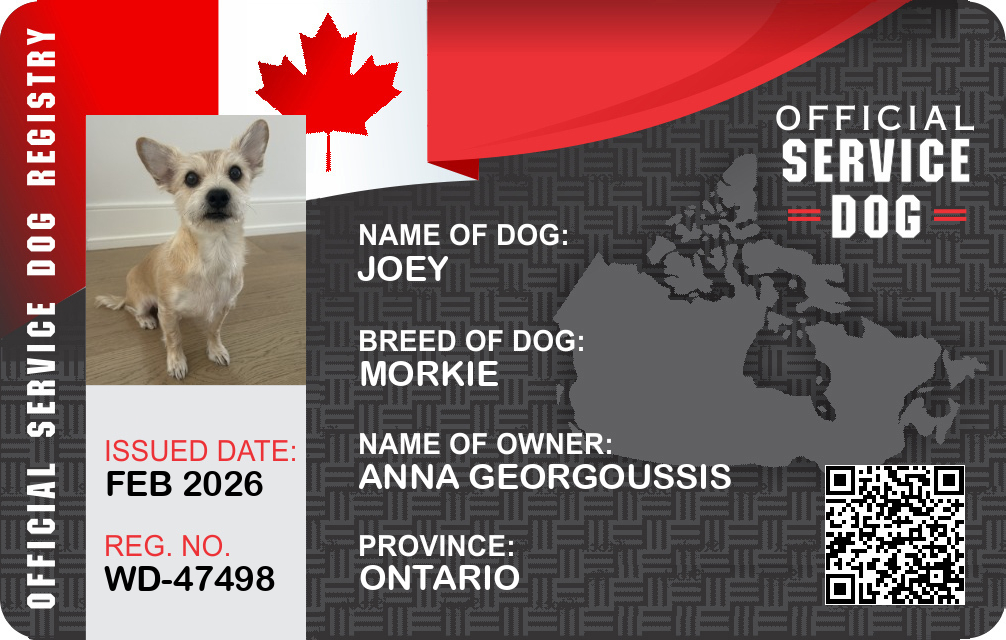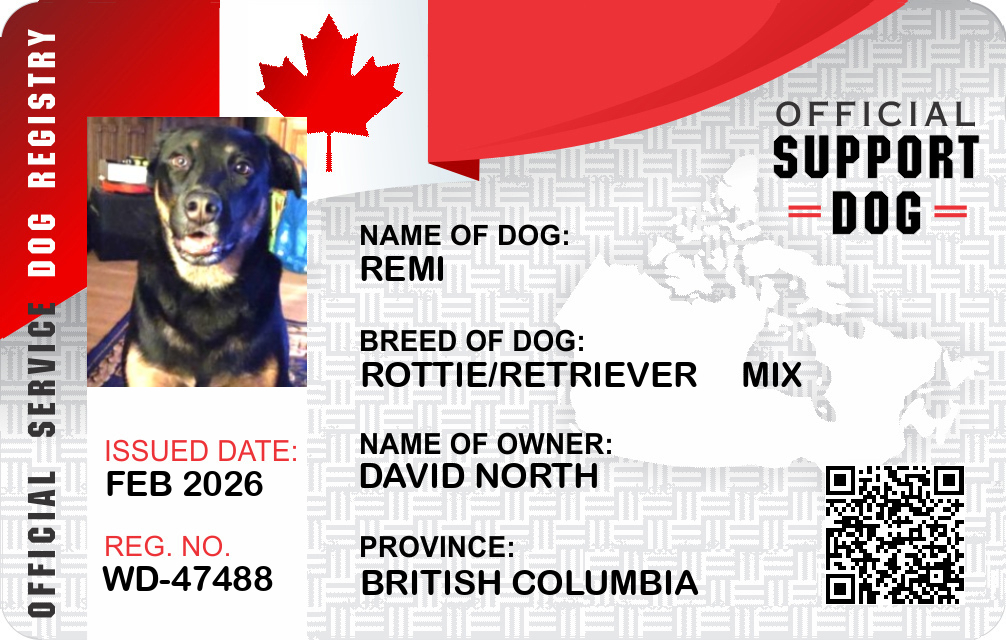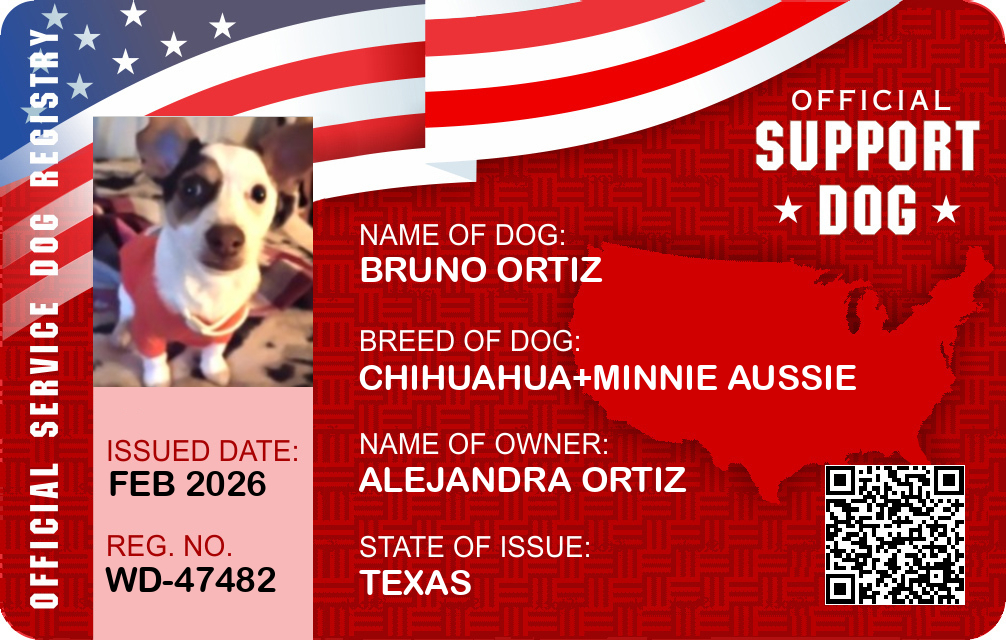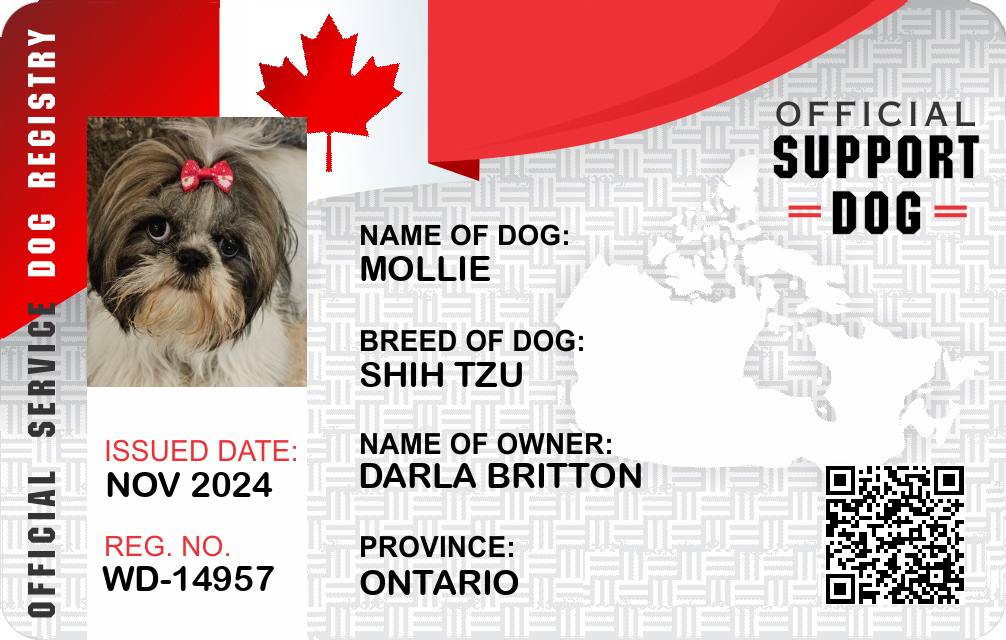West Virginia Emotional Support Animal Laws
Get Your Documents
Example State Cards


Overview of ESA and Legal Definitions in West Virginia
What is an Emotional Support Animal?
An Emotional Support Animal (ESA) is a companion animal that provides therapeutic benefit to individuals with a mental or emotional disability. Unlike service animals, ESA are not specifically trained to perform tasks for their owners but rather offer comfort and emotional support through their presence. They can be any type of animal, though dogs and cats are most common.
According to federal and state law, ESA are recognized based on the mental health benefits they provide, and they must be prescribed by a licensed healthcare professional. The prescription typically takes the form of an ESA letter, stating that the animal is a necessary part of the individual’s mental health treatment plan.
How ESA Differ from Service Animals
The distinction between ESA and service animals is of notable legal importance. Service animals, primarily dogs, are individually trained to perform tasks or do work for people with disabilities, such as guide dogs for the visually impaired. Their role is to facilitate the independence and livelihood of the person they assist, hence, they have broad public access rights under the Americans with Disabilities Act (ADA).
In contrast, ESA do not require specific training to perform tasks related to a disability. Their primary role is to alleviate distress through companionship. As a result, ESA do not have the same access rights to public spaces and cannot accompany their owners everywhere a service animal could.
Key Federal Laws Affecting ESA (e.g., FHA, ACAA)
Federal laws play a critical role in defining and protecting the rights of ESA owners:
- Fair Housing Act (FHA): This law mandates that individuals with documented disabilities and their ESA are allowed to live in housing with pet restrictions or prohibitions. Landlords must provide reasonable accommodation for ESA unless it results in a significant administrative or financial burden.
- Air Carrier Access Act (ACAA): Previously, this act allowed ESA to travel in aircraft cabins with their owners. However, regulatory changes by the U.S. Department of Transportation in 2021 saw the reclassification of ESA, removing their special air travel accommodations. Now, only trained service dogs are recognized.
State-Specific ESA Laws in West Virginia
Housing Rights and Responsibilities
West Virginia complies with the FHA, granting individuals with ESA the right to live with their companions in no-pet housing. This right is contingent upon the submission of legitimate documentation, such as an ESA letter from a certified healthcare provider. Landlords are not permitted to impose pet fees or deposits for ESA but can request proof of the animal’s necessity in relation to the tenant’s disability.
However, certain conditions can exempt landlords from accommodating ESA:
- Buildings with four or fewer units where the owner lives in one of the units
- Single-family homes sold or rented without a real estate broker
- ESA accommodation would impose an undue financial burden
Public Access and Accommodation
In West Virginia, like most states, ESA do not have the same public access rights as service animals. Thus, ESA can be legally excluded from most public places that do not allow pets, such as restaurants or retail stores. Business owners retain the right to deny entry based on their policy and ESA designation.
Transportation and Travel Rules
While federal law via the ACAA no longer provides special air travel privileges for ESA, public transportation in West Virginia may have policies to accommodate them, often mirroring those for pets. It’s crucial to verify policies with specific service providers, as transportation accommodations can vary widely.
Employment and Workplace Considerations
Employers in West Virginia are not legally required to accommodate ESA in the workplace, unlike service animals. However, some employers may voluntarily choose to allow them as a reasonable accommodation under the Americans with Disabilities Act (ADA) on a discretionary basis.
Employers may consider the workplace environment and potential disruption when making such decisions, and they can request documentation that supports the necessity of an ESA for mental health support.
Documentation, Requirements, and Processes in West Virginia
ESA Letters and Who Can Issue Them
An ESA letter is an official document issued by a licensed mental health professional, such as a psychiatrist, psychologist, or clinical social worker. The letter must include:
- The professional’s details, including licensing and contact information
- Confirmation of the individual’s disability and the therapeutic need for an ESA
- Date of issuance and validity period (commonly one year)
Registration, Certifications, and Common Misconceptions
Despite prevalent misconceptions, ESA do not require registration or certification from any government or third-party organization. Many online services offer registration as a ploy to sell unnecessary and illegitimate products. The only legitimate requirement is possessing an ESA letter from a qualified health professional.
Landlord, Business, and Provider Verification Rules
In West Virginia, landlords can verify the authenticity of an ESA letter but cannot inquire about the specifics of the individual’s disability. They may:
- Confirm with the issuing health professional that the letter is valid
- Request clarification on whether the animal poses a direct threat
Businesses and travel providers are generally not required to accommodate ESA, hence they may choose whether or not to verify ESA documentation through their own policies.
Rights, Limitations, and Legal Risks
Rights ESA Owners Have in West Virginia
ESA owners in West Virginia have specific rights primarily in housing situations due to the FHA, including the ability to:
- Obtain reasonable accommodation in housing that bans pets
- Live with ESA without paying additional pet fees or deposits
- Not be subjected to eligibility inquiries beyond documentation requirements
Limits on ESA Protections and Common Restrictions
Despite housing protections, ESA owners in West Virginia face various limitations:
- No public access rights to non-pet-friendly locations such as restaurants and stores
- No special considerations for workplace accommodations by employers
- Restrictions on air travel since the 2021 revision of the ACAA
Penalties for Fraud or Misrepresentation
Misrepresentation of an ESA as a service animal can lead to legal repercussions, including:
- Fines imposed by individual state or local jurisdictions
- Potential eviction from housing if fraudulent documentation is used
- Criminal or civil actions regarding intentional deceit, which violates ethical and legal standards
Practical Guidance for ESA Owners in West Virginia
How to Qualify for an ESA Legitimately
To legitimately qualify for an ESA in West Virginia:
- Consult a licensed mental health professional to assess the need for an ESA
- Obtain an ESA letter that outlines your mental health condition and the therapeutic necessity of the animal
- Ensure that your ESA’s documentation is kept current and readily available
How to Talk to Landlords, Airlines, and Employers
Communication is key when asserting ESA rights:
- Landlords: Present your ESA letter early in the lease process, explaining your rights under the FHA.
- Airlines: Confirm current airline policies during booking, as ESA are no longer guaranteed cabin access.
- Employers: Open a dialogue about your needs, understanding this involves voluntary accommodations outside of ADA requirements.
Summary of ESA Laws in West Virginia
- ESA provide emotional support but lack public access rights under ADA.
- West Virginia ESA housing rights align with FHA, offering ESA accommodation in no-pet housing.
- Service animals have broader access rights; ESA need proper documentation to obtain specific privileges.
- ESA letters must be issued by licensed professionals; no registry or official certification is needed.
- Confirm with landlords and service providers regarding ESA policies to avoid legal complications.
- Misrepresentation of ESA incurs legal risks, emphasizing ethical compliance in all interactions.
Understanding these provisions ensures ESA owners in West Virginia can responsibly uphold their rights and duties, supporting both their needs and public standards.
Get Your Documents
Example State Cards













